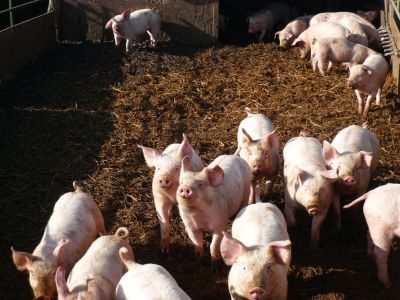Australian research paves the way for pig lung transplants

Australian medical researchers said Tuesday they have made advances that could see pig lungs transplanted into humans within a decade.
Pig organs have previously been unsuitable for use in life-saving operations because they stop functioning once in contact with human blood.
But researchers at The Alfred hospital in Melbourne have been able to get around that problem after a separate team at St Vincent's Hospital used genetic modifications to remove one of the key rejection barriers.
"Respiratory physicians from The Alfred have shown that pig lungs can be perfused with human blood and successfully oxygenate the blood for an extended period of time," a spokeswoman for the hospital said.
"This has not been achieved before."
The research means that transplanting pig lungs into people with life-threatening illnesses may be possible in the future.
"The blood went into the lungs without oxygen and came out with oxygen, which is the exact function of the lungs," researcher Dr. Glenn Westall told Melbourne's Herald-Sun newspaper.
"This is a significant advance compared to the experiments that have been performed over the past 20 years."
The Alfred hospital said the advances show that, based on the models tested, transplantation could be successful.
"That noted, clinical trials are probably still five to 10 years away and there is still a significant amount of work to be done," the hospital spokeswoman said.
mfc/ajc/hg
Join our commenting forum
Join thought-provoking conversations, follow other Independent readers and see their replies
Comments
Bookmark popover
Removed from bookmarks